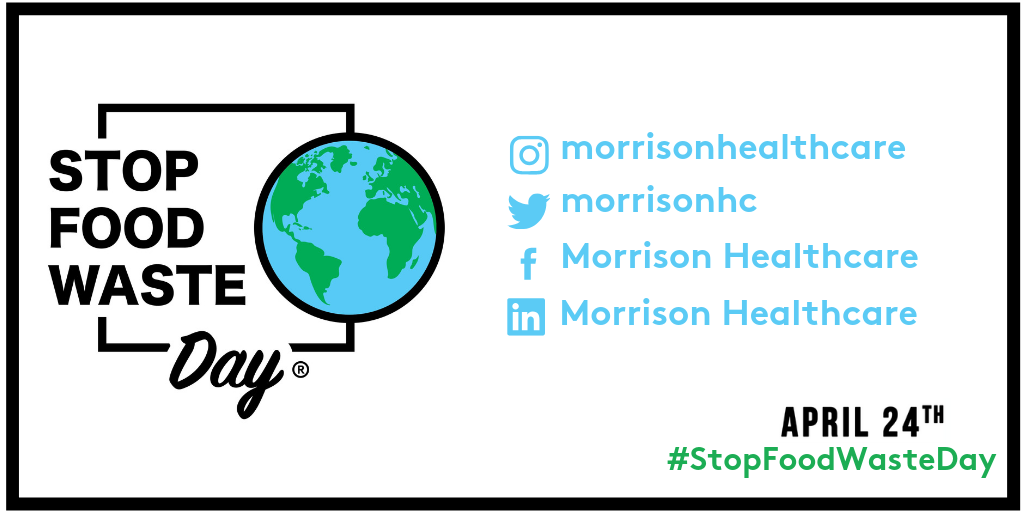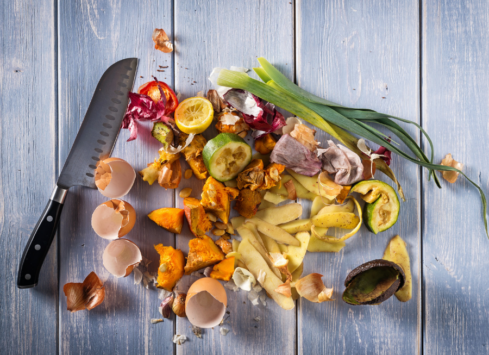Planning Tips to Help You Stop Food Waste
By Justin Newgaard, Corporate Executive Chef
We all know purchasing large amounts of food for large foodservice companies like Morrison is much different than buying food for a family at home. But when it comes to reducing food waste, all of us can take steps to achieve our goal.
A key is a complete approach to meal planning, which includes purchasing only the food we need and cooking the proper amount for each meal. And we need to find ways to use the food we don’t eat.
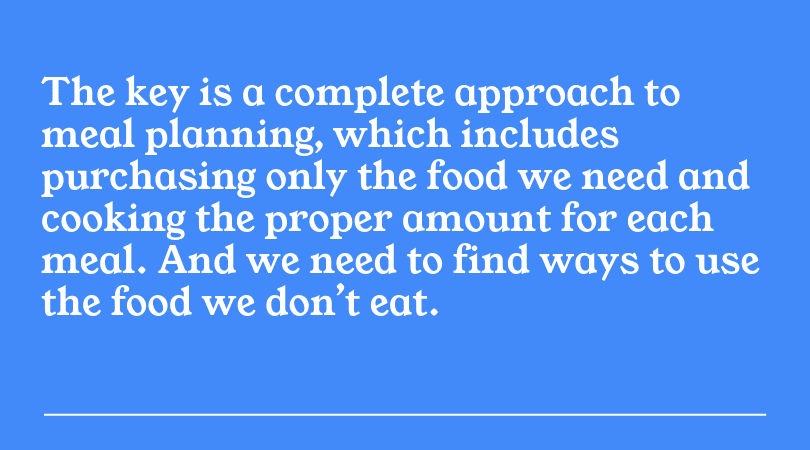
How Does Morrison Do It?
It’s been nearly two years since Compass Group created Stop Food Waste Day and pledged to cut food waste by 25 percent by 2020. Compass Group and Morrison are building an impressive track record of taking action that stops food waste.
One of the biggest fallacies about food is that we shouldn’t eat items with blemishes or don’t meet the eye test for edible food. Since launching in May of 2014, Compass Group’s Imperfectly Delicious Produce (IDP) program has fought food and water waste by “rescuing” or purchasing imperfect fruits and vegetables from growers and distributors.
In 2018, Morrison brought in 350,000 pounds of IDP produce. What’s especially exciting though, is that across the entire Compass Group family, we purchased more than 3 million pounds.
Our chefs and nutritionists are also putting our knowledge of food to help us get the most out of every item we purchase. A recent example is the impact of heavy rainfall this winter on the tomato crop in North America.
Between January through March, Florida and Mexico – the largest tomato-producing parts of the world – experienced much more rain than usual. As a result, the shelf life of each tomato is 1-2 days shorter than normal. We communicated with chefs throughout Compass and Morrison about this situation, resulting in quicker and better use of tomatoes and less waste.
The Role of Waste Not
Stopping waste begins in each kitchen where each chef tracks food waste through Waste Not, our online tool. A little more than one year after it was introduced, approximately 200 Morrison chefs are on board, measuring food waste daily and posting and tracking their results online.
Waste Not can determine the reasons for food waste and enable each chef to take steps to reduce it.
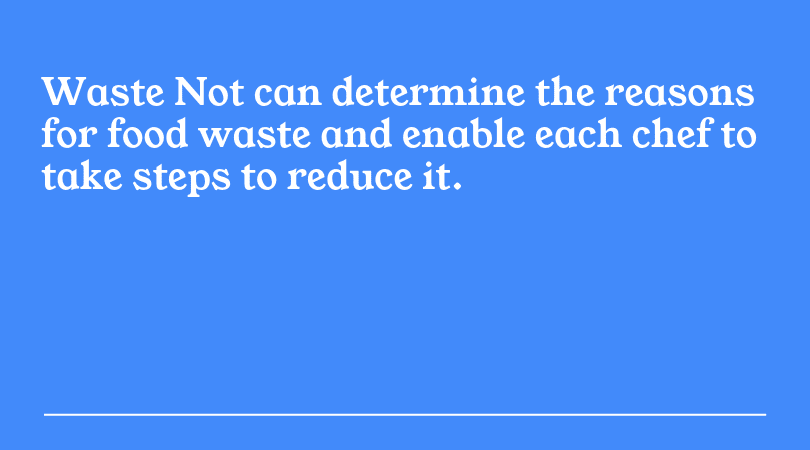
That’s just what happened recently at the Research Medical Center, a 500-bed hospital in Kansas City, Mo. We quickly found out that a lot of food was thrown out because the menu was too large.
So, we made changes. The entrée choices were reduced from nine to seven and the starches were cut in half. In addition, we work with Missouri Organics to pick up our waste scraps and turn them into compost. Because food is the heaviest item in any hospital trash, this action helped reduce overall food waste by 50 percent.
Practical Tips for Consumers
All of us have cleaned out our refrigerators leftovers from meals made several days ago pushed to the back or half-eaten produce that’s gone bad. We’re also guilty of buying too much food and needing to throw out much of it.
Here are a few tips that can help you reduce waste at home:
Develop Menus that Work for Your Family. Menu planning doesn’t need to be a detailed, time-consuming task. If you are buying for a family, make a list of items and stick to your plan. Also, have a plan to store leftovers – some can be placed in the refrigerators, others must be frozen. After your initial purchase, make any adjustments once you see how food is consumed and saved.
Only Buy the Food You Need. We often make the mistake of purchasing too much food, worried that we won’t have enough – and then it gets tossed out.
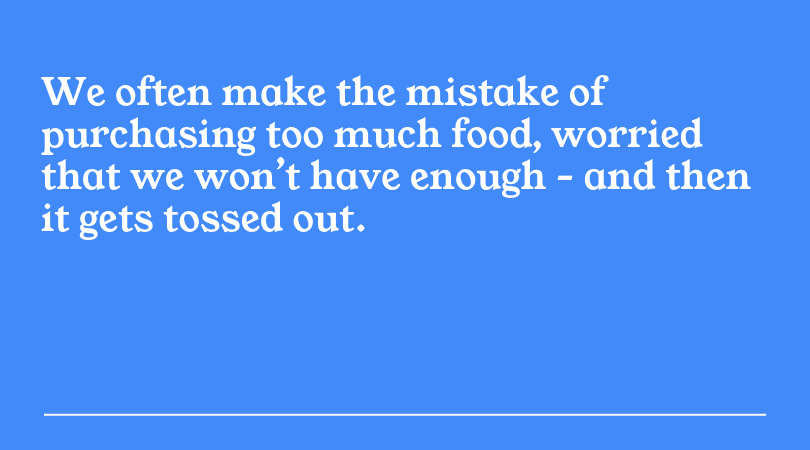
Instead, think about how your family consumes each item. For example, many times there will be six or eight bananas in a bunch – but not all get eaten. Don’t be afraid to only take three or four and leave the remainder of the next person. Also, buy items in bulk – many grocery stores now allow us to weigh nuts and other items, enabling us to pay for a few ounces of food instead of a pound.
Understand the Meaning of “Sell By” Date on Food Items. The “sell by” date on many products doesn’t mean you can’t consume those items after that date.
If an item is purchased on the “sell by” date, you can continue to store the food for a short amount of time. Here is the length of time you can keep food in the home before eating it: ground meat and poultry, 1-2 days past the date; beef, 3-5 days past the date, and eggs, 3-5 weeks past the date.
Once food is in the home and the “sell by” date has expired, I recommend freezing or composting food instead of throwing them out. Bread is a great example. Stale or moldy bread can be used in compost piles; the composting process can be speeded up by tearing the bread into smaller pieces.
Buy and Eat Ugly Fruit and Vegetables. Some carrots grow crooked, but they are just as good to eat as the straight ones. And if you see those ugly lemons or limes in the grocery, buy them! Once you peel these fruits, they will be just as good as the other fruit.
Here’s another way to think about it. Many people have small gardens to grow tomatoes. If you’ve taken the care and time to grow a row of tomatoes, you are going to make sure all are consumed. If all of your tomatoes get ripe at the same time, give some away to friends and neighbors, but can the remainder for future use. And get creative; if your family eats pizza on Friday nights, use the tomatoes for your sauce for a homemade pizza.
Volunteer for a Food Recovery Program. Morrison associates can help in two ways. The first is to set up a food recovery platform at your account with Eatable, an organization that has a partnership with Compass to establish food recovery programs in conjunction with hospitals and other clients. The second is to become a volunteer with the food recovery company at your account. It is a rewarding experience that will drive home all of the reasons we place such a high priority on stopping food waste.
Stop Food Waste Day is Coming!
- Stop Food Waste Day is about educating and igniting change. Food waste is a global issue with a wide variety of impacts. As a Compass Group family, we’re uniting to raise awareness and make small but significant changes in how we care for our food.
- Take the Stop Food Waste Day Pledge today!
- Follow along on our social media platforms so you don’t miss anything!
